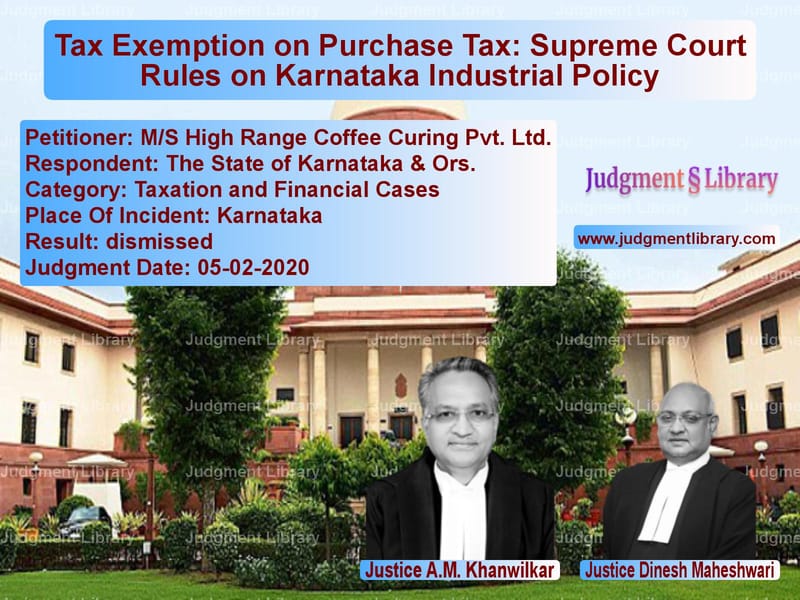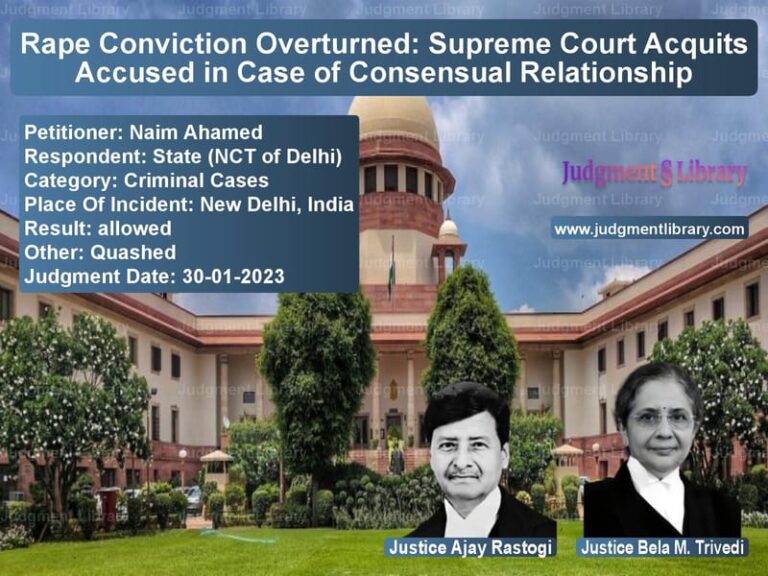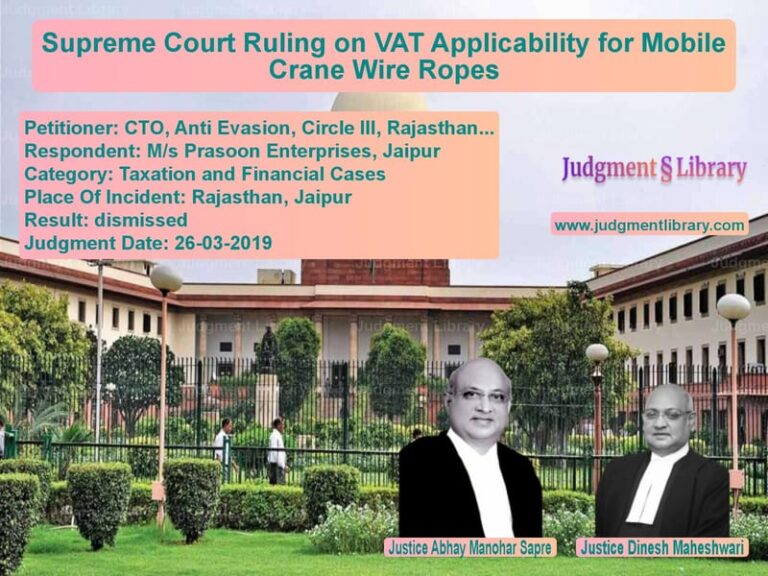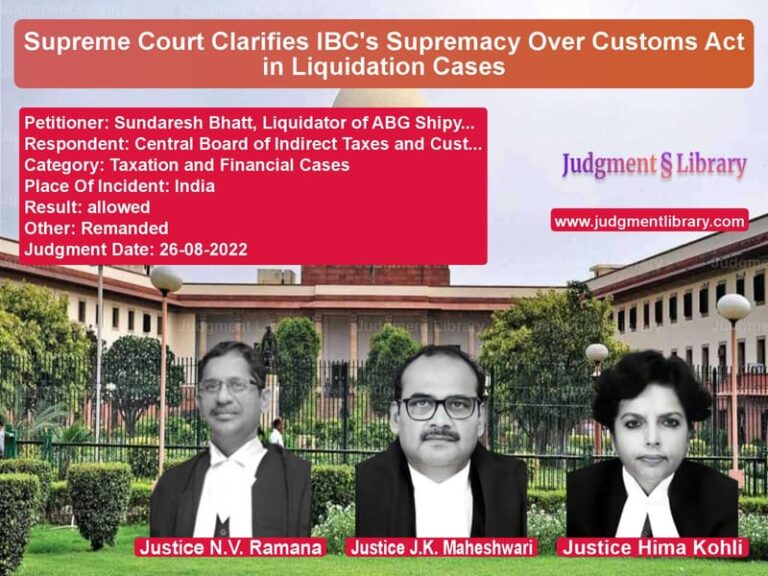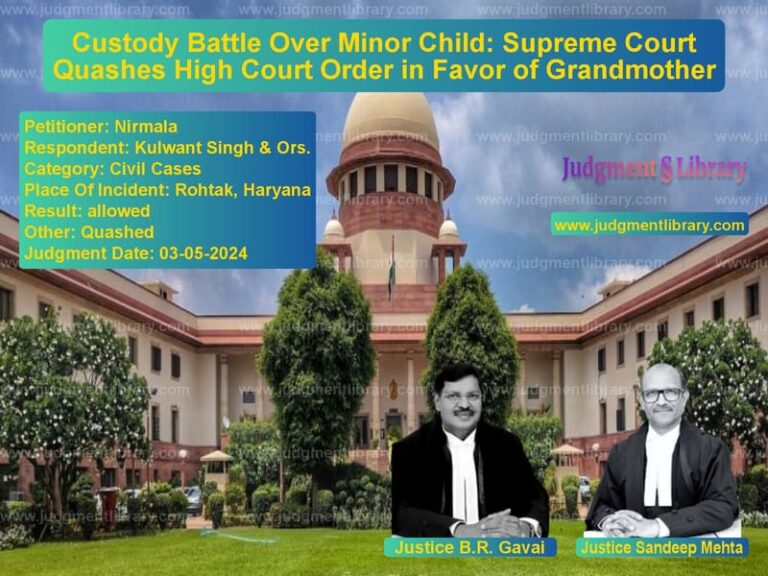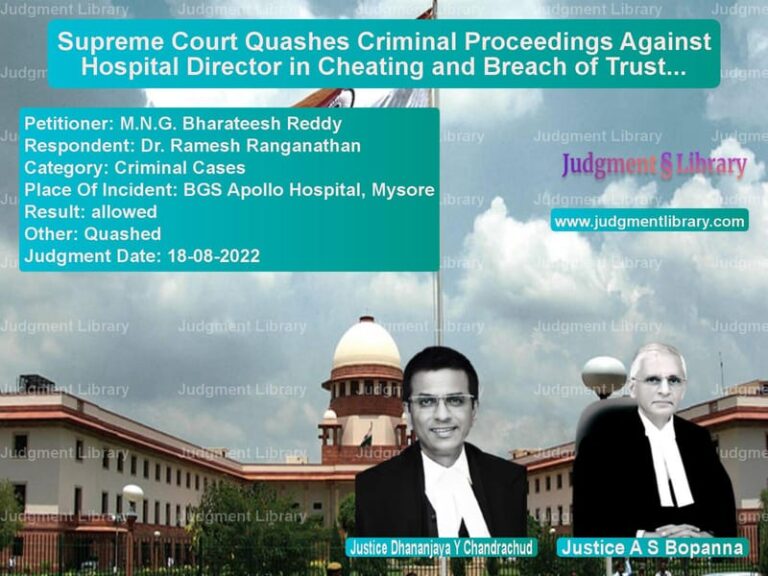Tax Exemption on Purchase Tax: Supreme Court Rules on Karnataka Industrial Policy
The case of M/S High Range Coffee Curing Pvt. Ltd. vs. The State of Karnataka & Ors. revolves around the interpretation of the Karnataka Industrial Policy, 1996, and whether it provides tax exemption for purchase tax in addition to sales tax. The Supreme Court ruled that the policy only provides an exemption for sales tax and does not extend the benefit to purchase tax.
Background of the Case
The appellant, M/S High Range Coffee Curing Pvt. Ltd., challenged the Karnataka High Court’s decision that denied them an exemption from purchase tax under the Karnataka Sales Tax Act, 1957. The appellant had relied on the Karnataka Industrial Policy, 1996, which granted sales tax concessions and incentives to new industrial units.
The dispute arose because the appellant claimed that the tax exemption should also apply to purchase tax, arguing that sales and purchase were two facets of the same transaction. The Karnataka Revenue Department, however, contended that the policy only granted relief for sales tax and not purchase tax.
The High Court dismissed the appellant’s claim, leading to an appeal before the Supreme Court.
Arguments of the Petitioner (M/S High Range Coffee Curing Pvt. Ltd.)
- The appellant contended that purchase and sales tax are two aspects of the same transaction, and exemption granted on one should automatically extend to the other.
- They argued that their industry had been included in Appendix-IV of the Industrial Policy, which indicated that the exemption should also apply to purchase tax.
- They relied on the Constitution Bench ruling in Devi Das Gopal Krishnan vs. State of Punjab (1967), which stated that a transaction could be viewed as a sale from one party’s perspective and a purchase from another’s.
Arguments of the Respondent (State of Karnataka & Ors.)
- The respondents asserted that the Karnataka Industrial Policy, 1996, explicitly provided exemption only for sales tax and did not mention purchase tax.
- They argued that tax exemptions are a legislative matter, and courts should not interpret exemptions broadly unless explicitly stated in the policy.
- They relied on the Supreme Court’s ruling in Malnad Areca Processing and Marketing Ltd. vs. Deputy Commissioner of Commercial Taxes (2008), where it was held that the Karnataka Industrial Policy, 1996, was limited to sales tax exemption.
Supreme Court’s Judgment
A bench comprising Justice A.M. Khanwilkar and Justice Dinesh Maheshwari dismissed the appeals, holding that the Karnataka Industrial Policy, 1996, does not grant exemption from purchase tax. The Court made the following key observations:
“The Industrial Policy provides for exemption only in respect of sales tax and not for purchase tax as such.”
Referring to the ruling in Malnad Areca Processing, the Court stated:
“Sales tax and purchase tax are distinct, and the Industrial Policy of Karnataka, as well as the exemption notification, makes it clear that only sales tax was meant to be exempted.”
The Court rejected the appellant’s argument that purchase tax should automatically be exempted because sales and purchase are parts of the same transaction:
“A sale and a purchase are two different aspects of the same transaction. However, a government order granting tax exemption must be strictly interpreted, and there is no provision for purchase tax exemption in the policy.”
On the issue of Appendix-IV, which included the appellant’s industry, the Court clarified:
“The fact that the appellant’s industry was included in Appendix-IV does not mean that the scope of the Industrial Policy changed to include purchase tax exemption.”
The Court emphasized that tax exemptions must be interpreted strictly:
“The power to classify objects or persons to be taxed or exempted lies with the legislature, and courts must not extend exemptions beyond their explicit language.”
Key Takeaways from the Judgment
- Sales tax and purchase tax are distinct: Exemptions for one do not automatically extend to the other.
- Tax exemptions must be strictly interpreted: Courts cannot broaden exemptions beyond the explicit language of the policy.
- Industrial Policy of Karnataka applies only to sales tax: The 1996 policy does not include purchase tax exemptions.
- Inclusion in an appendix does not change policy scope: Listing an industry in an appendix does not automatically grant additional exemptions beyond what is explicitly stated.
Impact of the Judgment
This ruling has significant implications for tax law and industrial policies in Karnataka:
- It prevents industrial units from claiming broad exemptions beyond the policy’s intended scope.
- It reinforces the principle that tax laws must be strictly interpreted.
- It ensures that tax incentives granted by the government are applied in accordance with legislative intent.
The decision provides clarity on tax exemption policies and will serve as a precedent for future disputes involving sales and purchase tax exemptions.
Conclusion
The Supreme Court’s ruling in M/S High Range Coffee Curing Pvt. Ltd. vs. The State of Karnataka & Ors. clarifies that Karnataka’s Industrial Policy, 1996, does not grant purchase tax exemptions. By upholding a strict interpretation of tax exemption policies, the Court ensures that exemptions remain within the limits set by the legislature, maintaining consistency in tax law application.
Petitioner Name: M/S High Range Coffee Curing Pvt. Ltd..Respondent Name: The State of Karnataka & Ors..Judgment By: Justice A.M. Khanwilkar, Justice Dinesh Maheshwari.Place Of Incident: Karnataka.Judgment Date: 05-02-2020.
Don’t miss out on the full details! Download the complete judgment in PDF format below and gain valuable insights instantly!
Download Judgment: MS High Range Coffe vs The State of Karnata Supreme Court of India Judgment Dated 05-02-2020.pdf
Direct Downlaod Judgment: Direct downlaod this Judgment
See all petitions in Income Tax Disputes
See all petitions in GST Law
See all petitions in Tax Refund Disputes
See all petitions in Banking Regulations
See all petitions in Judgment by A M Khanwilkar
See all petitions in Judgment by Dinesh Maheshwari
See all petitions in dismissed
See all petitions in supreme court of India judgments February 2020
See all petitions in 2020 judgments
See all posts in Taxation and Financial Cases Category
See all allowed petitions in Taxation and Financial Cases Category
See all Dismissed petitions in Taxation and Financial Cases Category
See all partially allowed petitions in Taxation and Financial Cases Category

